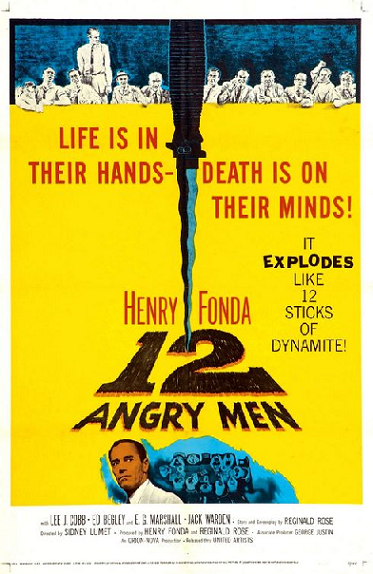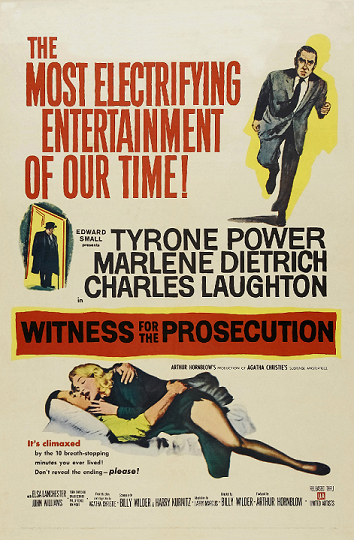
Starring: Henry Fonda, Lee J. Cobb, Ed Begley, E.G. Marshall, Jack Warden, Martin Balsam, John Fiedler (a.k.a. Piglet), Jack Klugman, Edward Binns, Joseph Sweeney, George Voskovec, Robert Webber
Director: Sidney Lumet (in his directorial debut)
Summary: A jury holdout tries to convince his colleagues to vote not guilty
Other Nominations: Director, Adapted Screenplay
Positives
-The screenplay is fantastic: the story is constantly moving forward, it’s tense and the pacing is tight, the characters are well-defined almost immediately yet have depth that later becomes apparent and it intelligently explores a number of themes such as prejudice and problems with public defenders that still exist just as much today.
-There are a number of wonderful performances here and I have no idea how it got no acting nominations. Besides Fonda, who is always great playing decent men in scenarios full of bad (or at least flawed) people, Cobb is pure anger and intensity and Begley and Klugman are also memorable.
-The cinematography is outstanding, and the only reason it wasn’t nominated (and in fact should have won in my opinion) was the lack of big, sweeping landscapes and beautiful scenery, and because this was the one year from 1939-1967 where there was only one cinematography category, and all of the nominees were color films. It captures the tension, claustrophobia of the one location and the shifting dominance of the characters extremely well.
-Any time a movie can successfully make the audience feel the same way the characters do in a movie is a glorious thing-here, every one of the above elements (script, acting, cinematography) serve to make the audience feel the same exhaustion the characters are going through. From the near-constant rising tension throughout the story to the building intensity of the acting to the tighter and tighter camera work as the film progresses, it’s a masterwork of filmmaking from all aspects.
Negatives
-Most of the problems for me come from my perspective as a J.D., where there a lot of problems with how the jury operates in this movie. The most obvious example is when Fonda produces the second knife, which is a massive problem under every state’s rules of evidence (a juror cannot conduct his own independent research for the case nor bring in outside evidence). Beyond that, the jury pretty much takes massive and compounding assumptions about everything and in general do a terrible job of doing what a jury is supposed to do. It didn’t bother me THAT much, as all of this is in aid of an effective story, but it’s probably the film’s biggest failing.
Overall
One of the great courtroom dramas-it’s taut, briskly-paced and has a number of great performances made even better through its excellent cinematography. Whatever problems it has with how juries actually work will don’t hinder the enjoyment that much.
Rating: A




